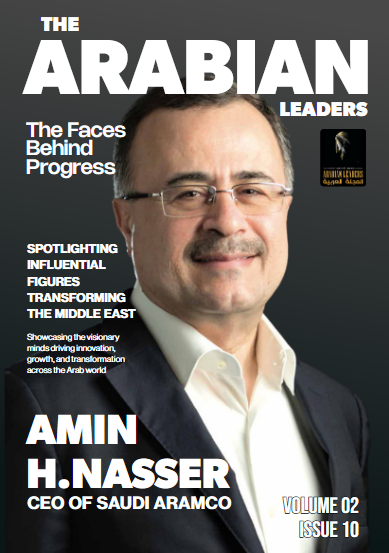In the realm of Saudi Arabian success stories, few are as remarkable or as humbling as that of Sulaiman Abdul Aziz Al Rajhi. From humble beginnings to becoming one of the richest men in the world, Sulaiman’s path wasn’t just defined by his wealth, but by what he chose to do with it. As the co-founder of Al Rajhi Bank, the largest Islamic bank in the world, and the architect of numerous philanthropic and educational institutions, Sulaiman’s legacy transcends financial influence—it represents purpose, vision, and humility.
Humble Beginnings in the Heart of Najd
Born in 1929 in the city of Al Bukairiyah, in the Al Qassim Province of Saudi Arabia, Sulaiman grew up in a modest environment that instilled in him a powerful work ethic and deep Islamic values. He had no formal education beyond elementary school, but his determination and business acumen far outweighed any academic credentials.
His early ventures were humble—working with his brothers to assist pilgrims traveling to Makkah and Medina. They began by exchanging currency and providing logistical support for Hajj travelers. This early foray into trade and service sowed the seeds for what would eventually become a powerful financial empire.
Founding of Al Rajhi Bank: A New Era in Islamic Finance
In the 1950s, Sulaiman and his brothers formalized their efforts into a commercial entity, marking the inception of the Al Rajhi family business. But it wasn’t until 1983, when the brothers launched Al Rajhi Bank, that their true impact began to take form.
Al Rajhi Bank became the Kingdom’s first major bank to operate entirely under Islamic Sharia principles. The bank’s prohibition of interest, focus on ethical investment, and religious integrity attracted millions of customers seeking a financial institution that reflected their beliefs.
Under Sulaiman’s leadership, the bank grew rapidly—not only in Saudi Arabia, but throughout the region. It became a cornerstone of Islamic finance, earning credibility not just for its size, but for its consistent profitability and strict adherence to Islamic jurisprudence.
Today, Al Rajhi Bank stands as one of the most successful Islamic financial institutions globally, with a market presence in Kuwait, Jordan, and Malaysia.
Building a Philanthropic Legacy
Sulaiman Al Rajhi is known not just for building a financial empire, but for his complete devotion to philanthropy. His commitment to giving was not an afterthought—it was a lifelong philosophy grounded in his faith.
His defining moment came in 2011, when he made headlines around the world by donating the majority of his fortune—estimated at over $7 billion—to charitable causes. He transferred his ownership in Al Rajhi Bank, as well as his holdings in agriculture, education, and industry, to the Sulaiman Al Rajhi Endowment.
One of his most influential philanthropic ventures is the Sulaiman Al Rajhi University in Al Bukairiyah, a non-profit institution focused on health sciences and Islamic finance. Through this university and other projects, he has empowered thousands of students, scientists, and thinkers to build better futures for themselves and their communities.
In addition to education, Sulaiman’s philanthropy includes food security projects, orphan support, healthcare facilities, Quran memorization programs, and sustainable farming across Saudi Arabia and the Islamic world.
Recognition and Honors
Sulaiman Al Rajhi’s contributions have not gone unnoticed. In 2012, he was awarded the prestigious King Faisal International Prize for his commitment to philanthropy and his pivotal role in advancing Islamic banking. The award recognized not only his financial contributions but also the profound social and cultural impact of his work.
Despite his influence, Sulaiman has always maintained a life of humility. Often dressed in traditional Saudi attire, he is known for living modestly and traveling without extravagance. His wealth was always viewed as a means to serve, not to indulge.
Pre-Conclusion: The Man Behind the Mission
As Saudi Arabia propels itself into a new era defined by Vision 2030, the legacy of men like Sulaiman Al Rajhi becomes increasingly valuable. His life offers a template for those who seek to lead not through dominance, but through service.
What distinguishes Sulaiman from other billionaires is not just that he donated his wealth—but how he gave it. He didn’t simply write checks to charities. He built institutions, created jobs, and shaped entire industries that could sustain themselves and continue giving for generations.
His vision for education was not about prestige—it was about accessibility. His approach to finance wasn’t about wealth—it was about faith. His investments weren’t about expansion—they were about impact.
Even in his later years, Sulaiman remained involved in his institutions, mentoring young Saudis, advising policymakers, and promoting ethical business models. For him, leadership was not a position; it was a responsibility.
Sulaiman Al Rajhi’s story resonates not only within Saudi Arabia but across the Muslim world. He has shown that it is possible to be deeply religious and remarkably innovative, to be traditional yet transformational.
In every sense of the word, Sulaiman is not only a builder of wealth—but a builder of legacy.
Conclusion: A Life of Purpose and Sincerity
In a world often dominated by headlines about excess, Sulaiman Abdul Aziz Al Rajhi’s name stands as a powerful contrast. His story is one of discipline, generosity, and unwavering faith. From carrying cash across deserts to founding one of the most successful Islamic banks, and from local beginnings to global influence, his life offers lessons on humility, intention, and purpose.
He has proven that wealth can uplift communities, that leadership can be quiet and yet transformative, and that legacy is not what you leave behind—but what you give forward.
Sulaiman Al Rajhi is not only one of Saudi Arabia’s most impactful businessmen—he is one of its greatest humanitarians. And in a nation looking to the future, his values may be more relevant now than ever before.








